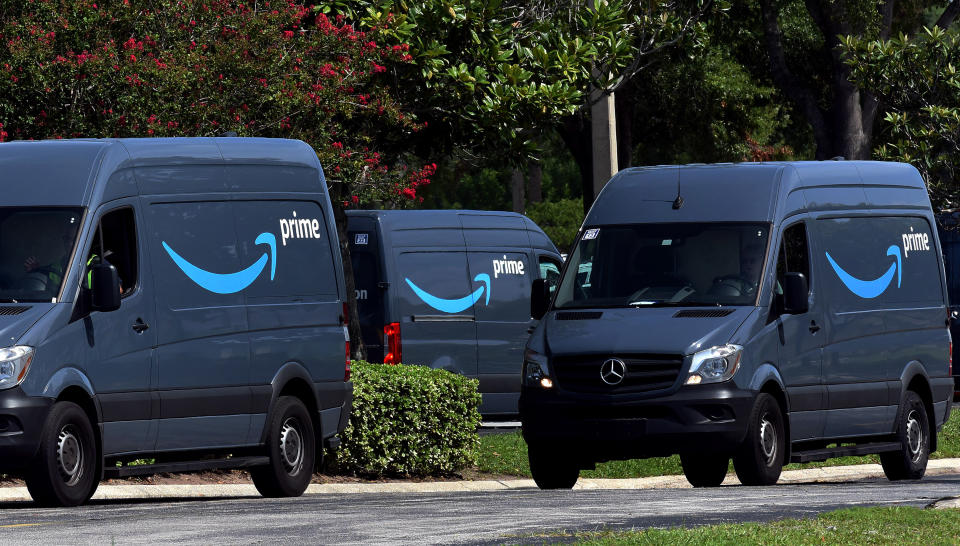Amazon has too much power over our economy: activist
Amazon’s impact on your local community is probably much larger than you think.
A new report from the Economic Roundtable provides a snapshot of Amazon’s (AMZN) footprint in towns and counties across America. The report, which focuses on the Los Angeles area in particular, finds that the arrival of Amazon and its 21 warehouses has generated new and wide ranging challenges to the city’s infrastructure, workforce, and local government. In 2018 alone, Amazon’s trucks hauled 15.5 billion ton-miles of cargo in Los Angeles, costing the city an estimated $642 million in “uncompensated public costs for noise, road wear, accidents, and harmful emissions.”
“We're deeply concerned about how much power Amazon has across the economy and across our society and even with government,” said Stacy Mitchell, co-director at the Institute for Local Self-Reliance. “This is a company that increasingly controls the basic infrastructure for commerce, that's really able to set the rules. And we see Amazon changing the nature of work, really disrespecting its workers. We see it going after governments and local governments and demanding tax breaks and other favors that aren't available to other businesses.”

The Institute for Local Self-Reliance is part of a grassroots coalition called Athena, which aims to put a stop to Amazon’s rapid growth and reign in its power over cities like Los Angeles. One solution, she proposes, is using the U.S. government’s anti-trust authority to break up the company.
“We have to solve this in a more systemic way. And that means getting to the root of the problem, which I think for us anyway means looking really at the tools of anti-monopoly policy, resurrecting the kinds of policies and approaches that we had in much of the 20th century that were critical to our prosperity,” she told Yahoo Finance.
“We didn't let any company get so large that it really strangled opportunity, strangled innovation, strangled competition,” she said. “And today, because we have let those laws go lax, we now have this big tech company that really has got just incredible reach across the economy.”

As the holiday season approaches, Amazon will push its workforce even harder as the company grinds toward maximum efficiency. To achieve its goal of ultra-fast shipping while maintaining low prices, Mitchell said, the company is “pushing a very dehumanizing approach to work.”
“What you consistently hear when you talk to Amazon workers is they're treated like robots, like machines, and not like humans,” she added. “That's a future that we don't want and really is at the root of a lot of inequality and a lot of hardship that's going on across the country.”
Nick Rose is a producer for Yahoo Finance.
Read the latest financial and business news from Yahoo Finance
Follow Yahoo Finance on Twitter, Facebook, Instagram, Flipboard, SmartNews, LinkedIn, YouTube, and reddit.

 Yahoo Finance
Yahoo Finance 